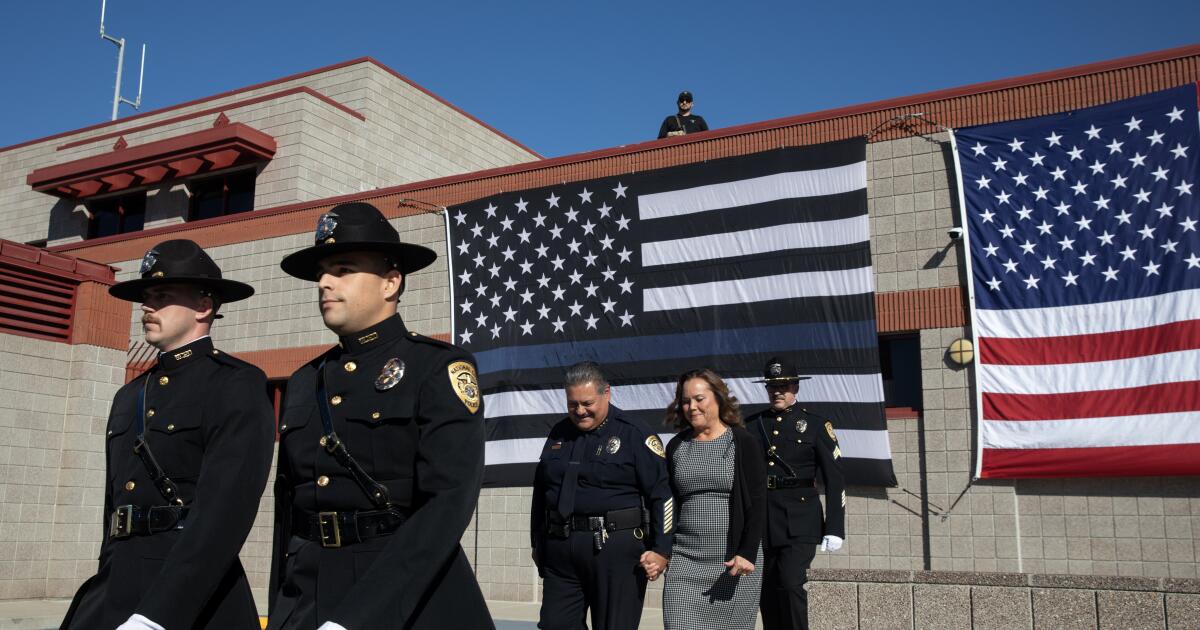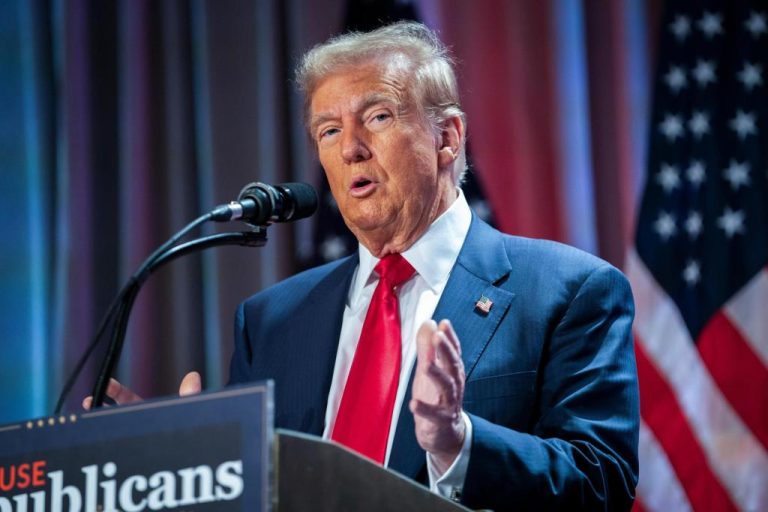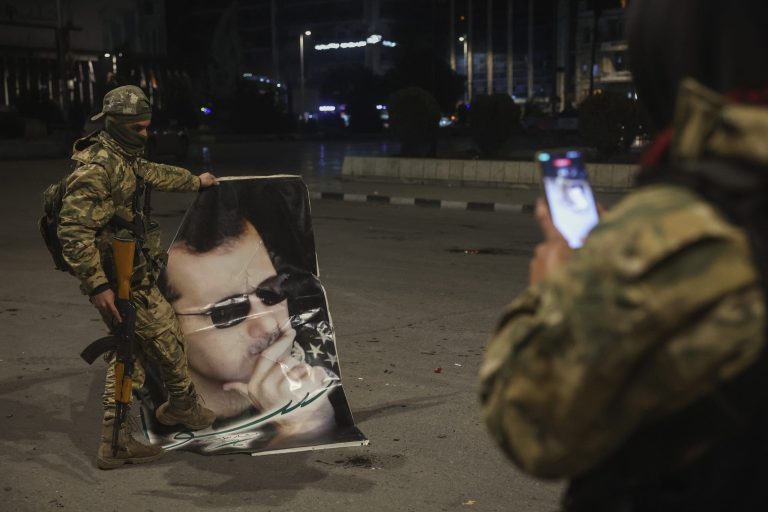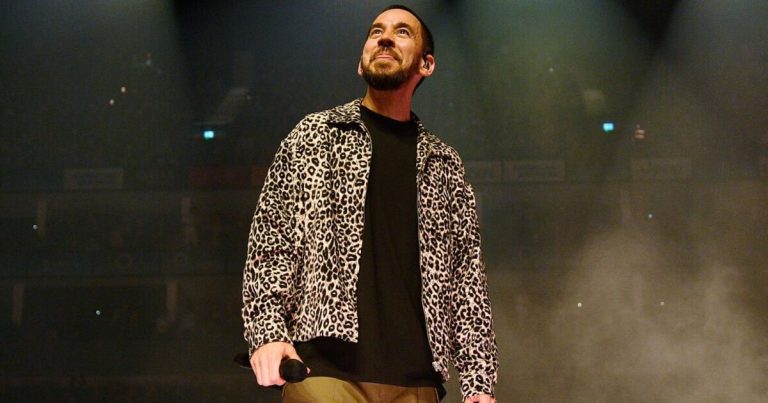
When Jose Tellez was sworn in as a National City police officer in 1988, Ronald Reagan was still the president. Back then, Michael Jackson, Whitney Houston and George Michael were topping the charts and a congressional law banning cigarette smoking on airplane flights less than two hours long went into effect.
Some 35 years later — the last four as chief of the National City Police Department — Tellez retired last week. In the top job, he oversaw a department with 90 sworn officers, about 40 professional staffers, and a couple dozen volunteers.
His retirement comes about five years later than he intended. He thought he might leave in 2018 — at the 30-year mark — but agreed to stay on at the request of the then-city manager.
That same year, the department faced protests and criticism following the death of Earl McNeil, a 40-year-old man who stopped breathing and suffered brain damage after he’d been restrained while in police custody. He fell into a coma and died two weeks later.
Tellez stepped into the chief role the following year.
With his retirement, his immediate plans are simple: “unwinding and relaxing and decompressing from the last five years,” he said.
Last week, two days after he hung up his badge, Tellez talked with the Union-Tribune about what led him into policing, the changes he’s seen and what it was like to lead the department through a global pandemic.
Q: Take us back to the beginning of your career. Why did you become a police officer?
A: I grew up in Southeast San Diego. We were low-income. You saw crime now and then, our home was burglarized twice. As a kid, you kind of get an impression of what victims of crime go through when you see your parents go through that. So I think early on I had a good sense of right and wrong and then certainly when I grew up, it kind of never went away. I went to San Diego State majoring in criminal justice. And the interesting thing about it is that the chief of National City PD at the time was Terry Hart. And Chief Hart, during my junior year, was one of my instructors in the night class I was taking. He encouraged me to apply for National City when I got closer to graduation.

Chief Jose Tellez hugs officers during his retirement walkout.
(Ana Ramirez/The San Diego Union-Tribune)
Q: How has policing changed and the department evolved over 35 years?
A: I started in 1988. Community-oriented policing was in its inception and started to take off. Then we really made a concerted effort at that time and certainly the early and mid-90s to connect parts of the community. We evolved as a department by connecting more with the community, being more involved in places of worship, being involved more in the schools, doing more of the crime prevention outreach and more community events where the public can see our officers in a different light. Today it’s a hand-in-hand partnership with the community. It’s something we don’t take for granted. We devote a lot of time and effort and energy into that part of it, because that’s really what allows us to do our job. If we don’t have the trust, if we don’t have the confidence and the residents and our business owners, the police department can’t work independently of that.
Q: The department came under a lot of scrutiny following the in-custody death of Earl McNeil. What were some of the takeaways and the lessons learned there?
A: Our officers had to start playing a bigger role in the issue of mental illness. I think the big takeaway is that obviously the officers have to be trained, and they have been since that time, not only us but across the county. Obviously, we were used to handling individuals with addiction. But when you compound both of those issues in one, it becomes more challenging. So what we’re doing different now is that now it’s primarily a medical issue, because some of these individuals are under the influence and may be suffering a mental crisis. It’s really common now for officers and medics to be dispatched simultaneously to something like this just to avoid everything that happened in the past.
Q: Several departments are having a tough time recruiting people. How is National City addressing recruitment challenges?
A: We’re all competing for the same group of individuals. I think what we’ve done a little bit different is we really have looked into our community to try to recruit from within our community. I think you get more out of an individual who came from the community because they have a stake in it, they have pride in their community and they want to give back. When we’re invited to various meetings in the community, we’re also recruiting because we like to see some of these young people in our community apply for us. We’ve been pretty successful in that a lot of our folks either have family that live in National City, they grew up in National City or they still have some ties to National City. And really there’s a loyalty to a place that you grew up.

Chief Jose Tellez and Lovelie Reyes, 8, check out a toy during the 30th annual “Shop with a Cop” event at the Target in the Midway District on Dec. 2, 2023, just days before his retirement.
(Kristian Carreon/For The San Diego Union-Tribune)
Q: What was your biggest challenge as chief? What kept you up at night?
A: It’s all the time. The things that kept me up at night were the safety of my officers. I always worry about that. We always plan for the worst and we hope for the best. You hope that what other communities have experienced, unfortunately, like active shooters, hopefully that doesn’t come here or anywhere in San Diego County. There’s nothing that a chief takes for granted because anything can hit you, can happen on any given day.

Chief Jose Tellez becomes emotional saying his good-byes Tuesday.
(Ana Ramirez/The San Diego Union-Tribune)
Q: Was there a particularly big challenge?
A: COVID was big. Who would have expected that? I started as chief in 2019 and everything was great. We’re moving great. We’re hiring people and all of a sudden we hit the brakes with COVID. When you heard the initial description of what COVID was — a lot of people could get sick, a lot of staff could get sick, severely sick — what do we do? Do we still keep doing what we’re doing or we change it? Should we continue to be proactive, because crime doesn’t stop? We had to have those tough discussions within our organization, and it was clear that our officers wanted to work, our professional staff wanted to work. We just continued business as usual, and we provided our officers with the best PPE (personal protective equipment such as gloves and masks) that we could. But our folks were fantastic. They came to work and we just worked through it, and I think that that kind of brought us even closer together.
Q: What are some of the proudest moments of your career?
A: Well, No. 1: We hadn’t had an internal chief that’s been start to finish in the organization since the ‘70s. When I was offered the job (as chief), in my mind that was one of the things that I wanted to change. We have a lot of great people in the organization, a lot of talent, a lot of leadership, and I think all we needed is an opportunity. So that was one of the reasons I felt I needed to stay, to really help set the next generation up. Our Assistant Chief Alejandro Hernandez has taken over as interim chief. I think his position will become official here after the new year. So that’s really gratifying that we’ve been able to change what used to be a trend in our department. Alejandro started as an explorer when he was 16 years old. He is a National City kid through and through. He is the type of engine we’re trying to recruit and we’ve been recruiting in the last few years.
Q: So what words of advice do you have for him?
A: The engagement with the community is key. This community expects us to be part of them. I’m sure we will continue that, he will continue to build relationships in all aspects of our community. He understands that.
Q: So National City is in good hands?
A: We have good people. The leadership team is there.

Chief Jose Tellez on his official walkout with his wife, Michelle.
(Ana Ramirez/The San Diego Union-Tribune)






